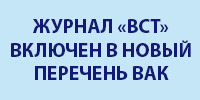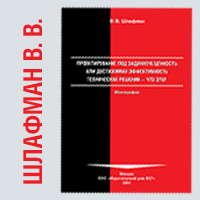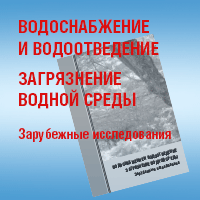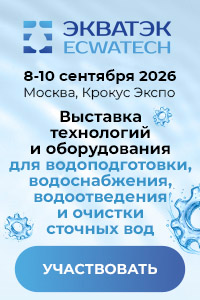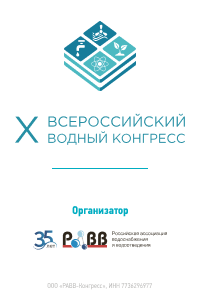№09|2023
DRINKING WATER SUPPLY
UDC 628.1:543.68:658.562
DOI 10.35776/VST.2023.09.04
The history of designing a modern system for drinking water quality monitoring and managing in St. Petersburg
Summary
Efficient quality control of the manufactured product is one of the main tasks for any production. Of particular importance is the management of the production process in case the product being produced is the basis for the life support and health of the consumer. The functioning of public water supply systems is of paramount importance, primarily in terms of reliability and safety [1]. The need to find a new paradigm for the safety of drinking water supply as an integral part of the national security of Russia was timely estimated by Felix Vladimirovich Karmazinov. In 2004, a vector was plotted for the development of water treatment systems inclusive of replacing the water quality control system based on discrete sampling for laboratory analysis, recording water quality change events post factum. With regard to the water supply security paradigm, this does not correspond to the level of risks from premeditated actions, nor to the modern engineering capabilities of online monitoring. One of the priority areas in the field of improving the safety of public water supply was the task of designing advanced monitoring systems that provide for predicting, identifying in a timely manner and preventing deterioration of the quality of processed, stored and transported water to the consumer. The chronology of the stages of implementing online monitoring systems for the control of the water quality and safety at the water supply facilities in St. Petersburg is given.
Key words
water quality monitoring system , measuring and computing system for water treatment technology control , risk factors in water treatment , risk management
For citation: Lobanov F. I., Portnova T. M., Bobrova I. L., Ganin A. Iu., Mekhnetsov I. A. The history of designing a modern system for drinking water quality monitoring and managing in St. Petersburg. Vodosnabzhenie i Sanitarnaia Tekhnika, 2023, no. 9, pp. 25–30. DOI: 10.35776/VST.2023.09.04. (In Russian).
The further text is accessible on a paid subscription.
For authorisation enter the login/password.
Or subscribe
REFERENCES
- Hoisler H. D., LobanovF. I. Proceedings of Megacity Development Strategy (some aspects) View in 2014 International Conference. Moscow, Informizdat Publ., 2013, pp. 59–64. (In Russian).
- Ipatko M. N., Il’iushchenko O. N., Portnova T. M., Gvozdev V. A., Lobanov F. I. [Automation of drinking water preparation processes at water supply facilities]. Voda Magazine, 2016, no. 5 (105), pp. 12–17. (In Russian).
- Bobrova I. L., Volkov S. N., Gvozdev V. A., Morozova Iu. A., Portnova T. M., Mekhnetsov I. A., Stolbov K. I. [Minimization of production risks. Intelligent control system for water treatment technologies: approaches and tools]. Nailuchshie Dostupnye Tekhnologii Vodosnabzheniia i Vodootvedeniia, 2022, no. 2, pp. 45–51. (In Russian).
- Bobrova I. L., Morozova Iu. A., Novikova E. M., Portnova T. M., Galaktionova O. D. [Development of a method for analytical prediction of water treatment process parameters]. Vodoochistka. Vodopodgotovka. Vodosnabzhenie, 2020, no. 11, pp. 52–59. (In Russian).
- Gvozdev V. A., Portnova T. M., Korchigo T. F., Morozova S. Z., Semivolos E. N., Mekhnetsov I. A., Koniukhov M. Iu., Stolbov K. Iu. [Methods of optimizing chlorammoniation processes on the basis of online water quality monitoring (experience of SUE «Vodokanal of St. Petersburg»)]. Vodosnabzhenie i Sanitarnaia Tekhnika, 2021, no. 5, pp. 4–16. DOI: 10.35776/VST.2021.05.01. (In Russian).


